The Mystery of Why Dogs Eat Grass
Aug 11,2023 | Petbobi
Have you ever gazed out your window and spotted your furry friend chowing down on a patch of grass as if it were a gourmet salad? Many dog owners have been left scratching their heads at this seemingly odd behavior. It's a curious sight that may seem amusing, but behind it lies an array of possible reasons that stretch beyond the boundary of mere whimsical dog behavior.
Canine History: The Grass-Eating Legacy
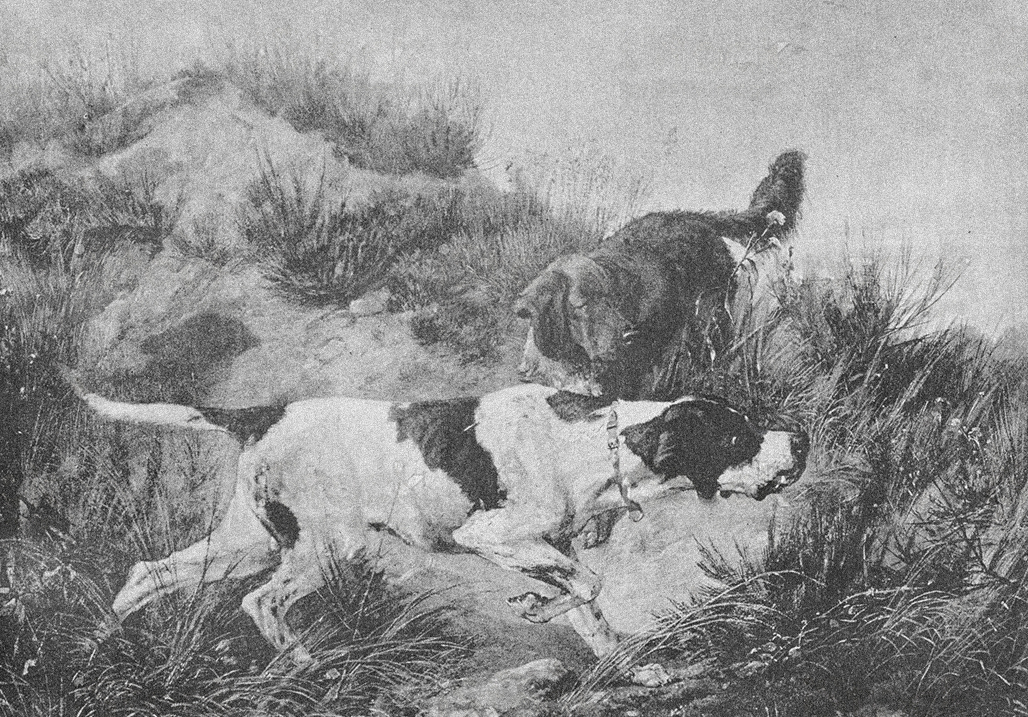
Rewind thousands of years and imagine, a world untamed and wild, a setting where dogs roamed freely, unrestricted by the boundaries of fenced yards or leashes. In this prehistoric era, canines weren't the domesticated pets we know and love today, lazing on our couches or chasing after balls in the park. Instead, they were wild, fierce, and fully reliant on their survival instincts.
Back then, our canine companions were omnivores, eating a wonderfully varied and balanced diet that didn't just consist of meat. It was a dietary smorgasbord, including a blend of succulent meats and a variety of plant materials. Meaning, they consumed meat, berries, fruits, and yes – grass!
Fast forward to today. This ancestral practice of grass-eating has trickled down generations and into your backyard. Your beloved four-legged friend, contentedly munching on a patch of grass, is essentially partaking in an age-old dietary ritual passed down through the annals of canine history.
At least, that’s one assumption as to why dogs eat weeds.
The Digestive Health Angle: Dog Gut Health
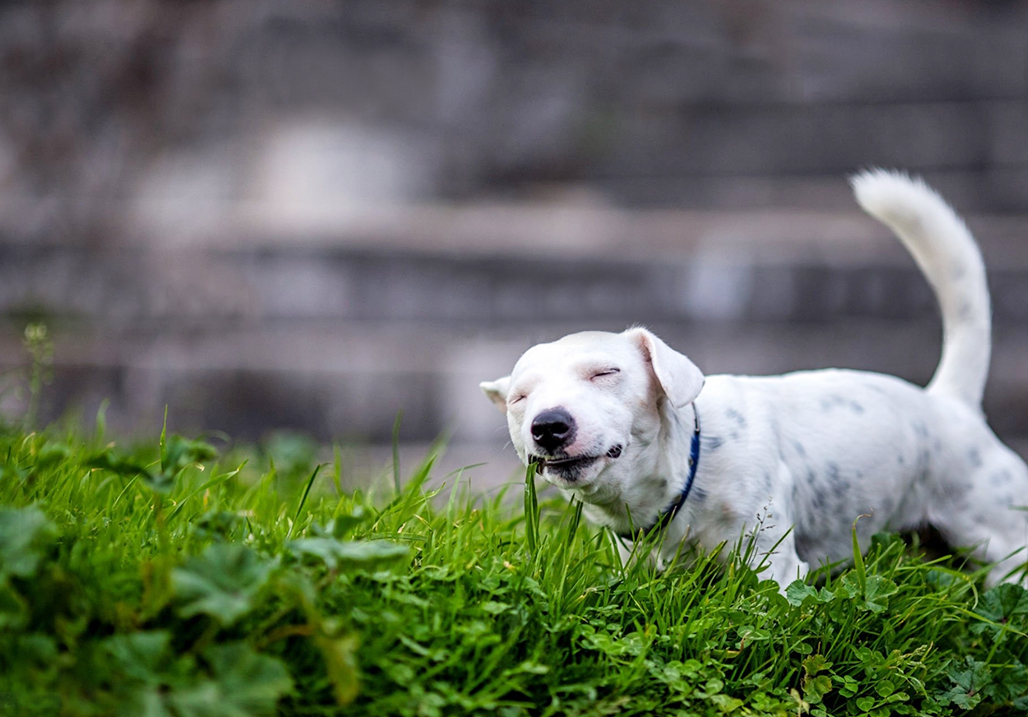
Is your pooch just being picky, or is there a method to the grass-munching madness? Sometimes, it's as simple as the grass tastes good to them! Other times, dogs might use grass as a natural toothbrush or even as a makeshift purgative to help with tummy troubles.
Surprisingly, your dog’s veggie nibbling might be a gut reaction - literally. In addition to its tummy-calming potential, grass acts as nature's fiber supplement for our canine companions. In the same way that we might seek out foods high in fiber to smoothen our digestive processes, dogs might instinctively use grass to enhance their dietary fiber intake. This natural roughage aids in regulating bowel movements and aiding in gut health.
This isn't just anecdotal. Scientific research corroborates these behavioral insights, suggesting dogs might indeed resort to grass to ease a troubled stomach or adjust their nutritional balance.
When their internal systems flag a potential issue, dogs may instinctively seek grass, tapping into an innate healing repertoire. Your pet's propensity for grass isn't a sign of oddity but an intelligent, instinct-driven response to their physical needs.
Potential Dangers and Risks of Dogs Eating Grass
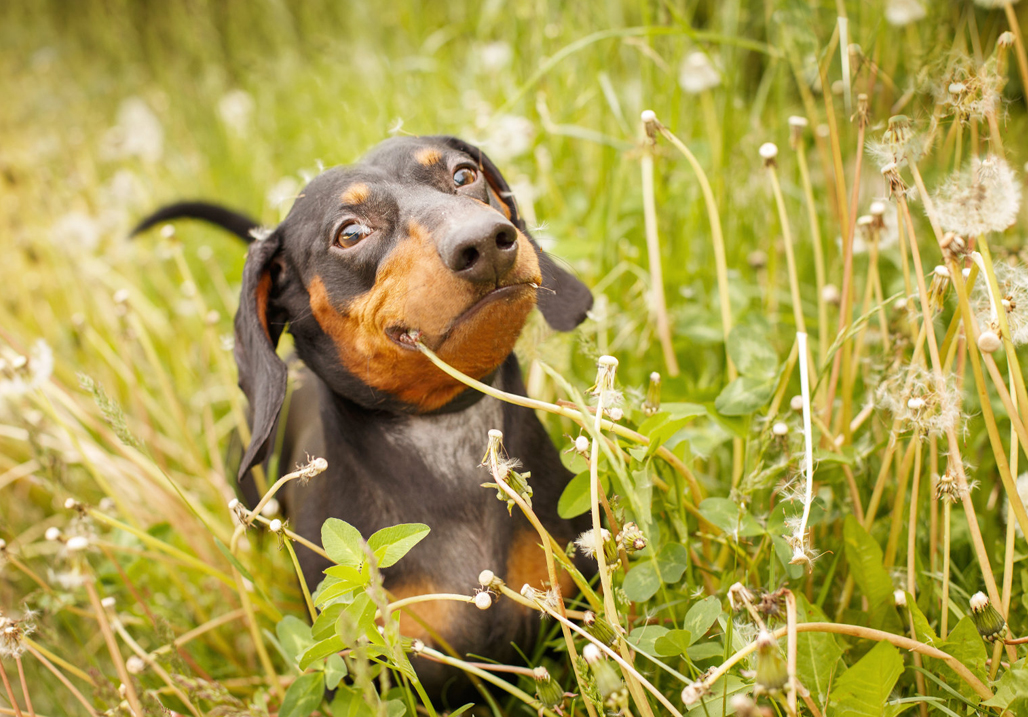
While a bit of grass might not harm your pet, not all pastures are pooch-friendly. You see, your dog’s discerning nose and taste buds don’t come equipped with a built-in 'danger' alert for chemically treated grass — at least not one that most dogs would understand. Pesticides and fertilizers sprinkled for lawn care might look invisible to us, but they can spell trouble if your dog munches on the tainted greenery.
Beyond chemicals, grass can also be a playground for some unwanted guests - parasites. Tiny bugs, invisible to our eyes, can hitch a ride into your dog's system, causing all sorts of health problems.
Also, too much grass can lead to blockages in your dog's digestive system, especially for dogs with smaller frames or those who gulp grass rather than nibble it.
And when it comes to plants, numerous everyday indoor and outdoor plants can be harmful, posing potential risks if your dog decides to snack on them along with their grassy nibbles. These plants can carry toxins detrimental to your pet's health, emphasizing the importance of making sure any foliage your dog interacts with is non-toxic. You can do this by referring to ASPECA’s Toxic and Non-Toxic Plants List, after all, it's important to curate a safe, pet-friendly environment, keeping in mind the delicate balance between your dog's instincts and well-being.
If It’s Dangerous, What Should I Do About It?
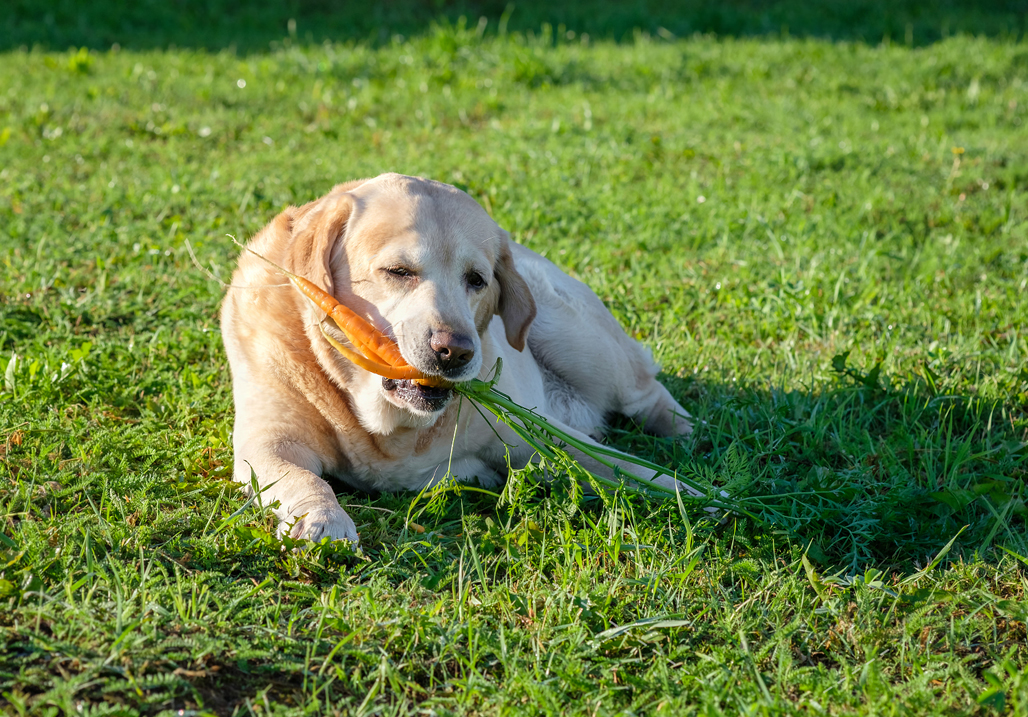 1. Dietary Deficiencies: Dogs might eat grass due to a lack of necessary nutrients in their diet. The grass can serve as a source of fiber or minerals they aren't receiving elsewhere.
1. Dietary Deficiencies: Dogs might eat grass due to a lack of necessary nutrients in their diet. The grass can serve as a source of fiber or minerals they aren't receiving elsewhere.
Remedy: Review your dog's diet to ensure they're getting a balanced and nutrient-rich meal. Consider seeking advice from a vet to recommend specific diets or supplements.
2. Boredom: If your dog is not getting enough exercise or mental stimulation, they might resort to eating grass out of boredom.
Remedy: Implement regular playtime, walks, and other stimulating activities. Consider using puzzle or Suction Cup Toys that can keep your dog occupied when you're not available to play.
3. Gastrointestinal Upset: Dogs may eat grass to induce vomiting if they're feeling unwell. This behavior can be an attempt to self-soothe a stomach issue.
Remedy: If your dog is vomiting frequently or showing signs of discomfort, talk with your vet. They may need medical attention for a potential gastrointestinal problem.
4. Behavioral (Pica): Pica is a condition where dogs eat non-food items, such as grass. This can be due to underlying medical conditions or behavioral issues.
Remedy: If your dog is consuming grass excessively and it's not related to diet, boredom, or illness, it's time to visit a vet. They can help diagnose any potential behavioral conditions or offer strategies for managing pica.
5. Evolutionary Behavior: Some theories suggest that wild dogs used to eat grass to help rid their bodies of intestinal parasites, and our domestic dogs have simply retained this behavior.
Remedy: Regular vet check-ups will ensure any potential parasites are detected and treated early.
6. They Like It: Some dogs may simply like the taste of grass or enjoy the texture and the act of chewing on it.
Remedy: Ensure the grass they're eating is safe and free from any chemicals or toxins. Try introducing dog-safe vegetables or herbs into their diet that may satisfy this craving.
Should I Let Fido Graze?
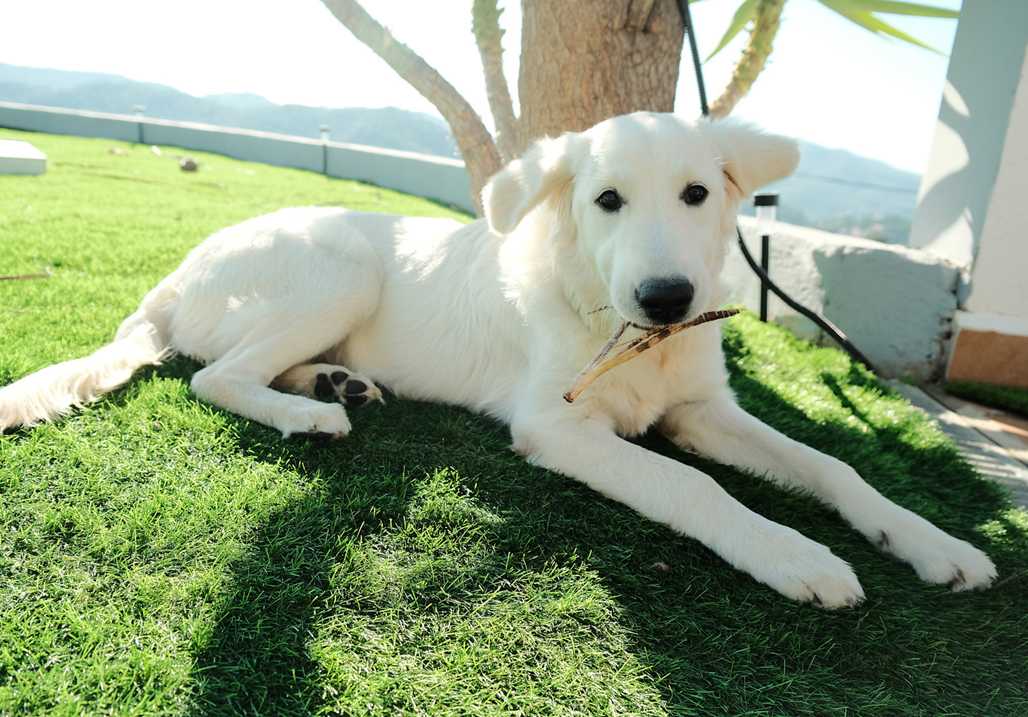
What’s a dog owner to do when their canine goes green? Pay attention to your pet’s grass-eating habits and ensure the area they are grazing on is clean and safe. If you need to limit their wandering in the yard, consider getting a Tie-out Cable and Stake.
And most importantly, if the grass chomping becomes excessive, or if it's paired with other worrying symptoms, don't hesitate to visit your vet.
In Conclusion
So, the next time you spot your dog having a little salad on the side, you'll have a better understanding of why. Some reasons are instinctive, echoing back to their wild ancestors, while others are more grounded in their current physical needs and conditions. It might be a dietary requirement, a remedy for a tummy upset, or even a way to alleviate boredom.
However, even with this guidance, your veterinarian knows your pet's health best. If your dog frequently eats grass, especially if they seem unwell, it's always wise to talk with your vet. They can help identify the root cause and recommend appropriate treatments or lifestyle changes. After all, keeping your dog happy, healthy, and safe is what being a pet owner is all about!




